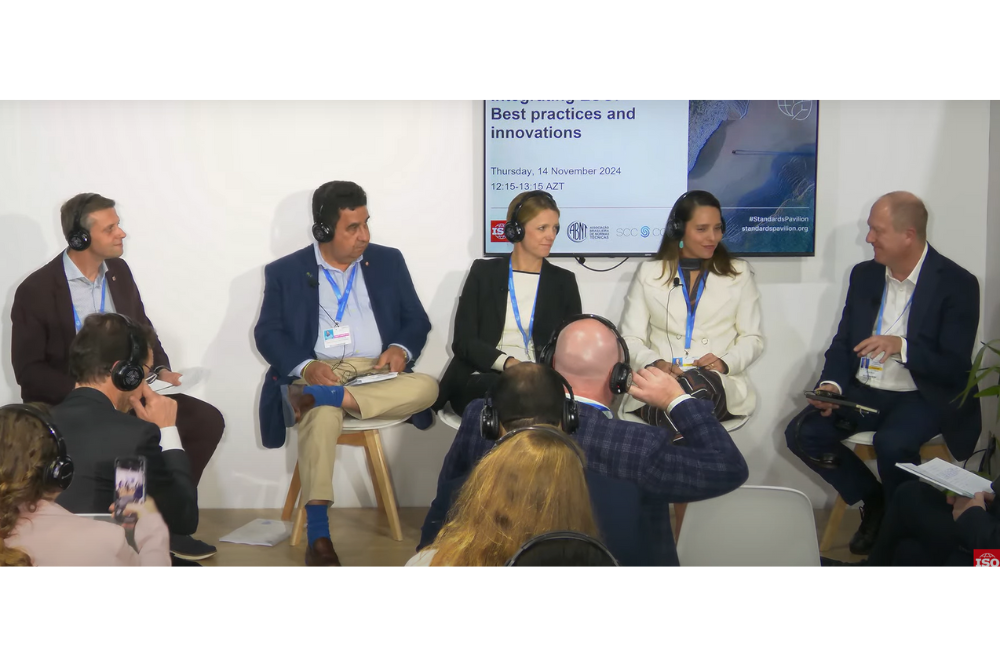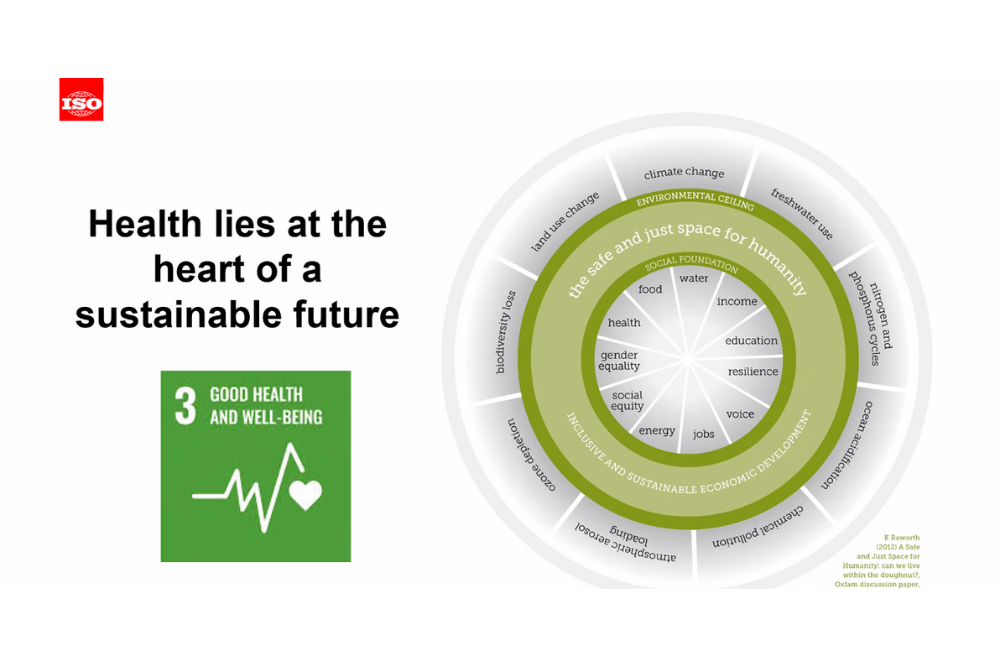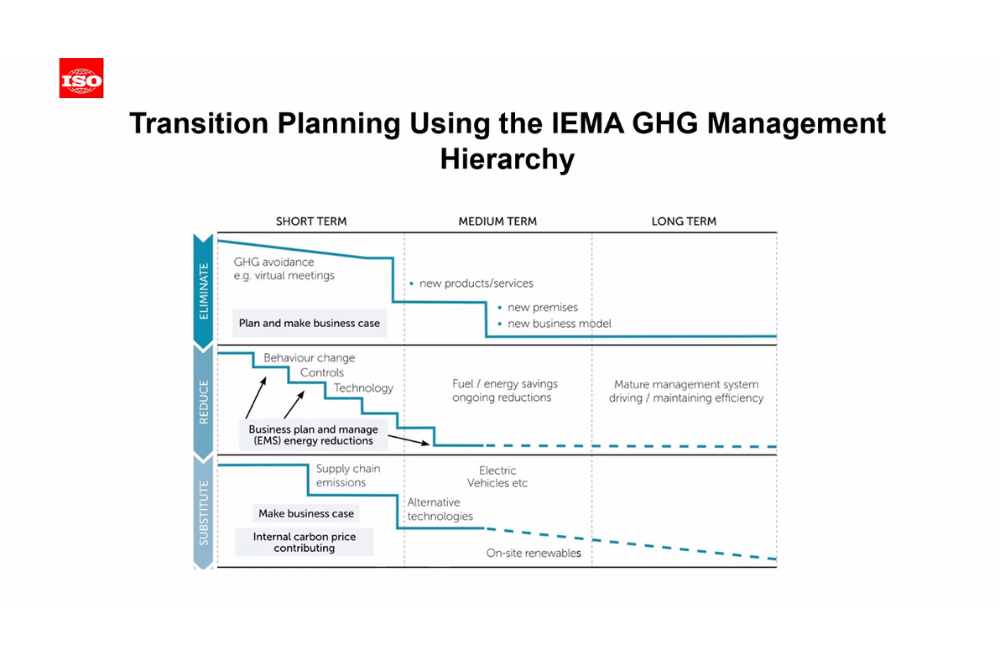

Deputy CEO Martin Baxter has been on the ground in Azerbaijan drumming up support for the Institute’s campaign calling for a greater focus on green skills and jobs at Cop summits.
This morning, he joined a panel discussion on how organisations can integrate ESG principles into their culture and management using standards, hosted by the International Organization for Standardization (ISO).
“This is all about people doing things differently and driving change, but with standards, you actually need to give people the capability to use them,” he said.
“The standards really help, but they need to be operationalised, and it’s people who are going to do that, so giving them that capability is really important.
“Learning, development and skills building helps people understand how they can take the guidance and apply it to their organisation, so if you can keep it really simple with that message then you drive change over time.”
On Wednesday, he also spoke at an event hosted by ISO on enhancing the climate resilience of healthcare systems worldwide.

“Climate change is a significant issue for health, including heat-related illness and potentially shifting patterns of disease,” Baxter said.
“There are also indirect pressures on the health system arising from the impact of climate change on food availability, crop failures, and water.
“But we shouldn't forget that health and the delivery of healthcare has a significant impact on climate.
"In the UK, the National Health Service accounts for around 4% of the country’s GHG emissions.
“We need to tackle the impact of climate change on health and the impact of health on climate.”
He went on to outline how standards like ISO 14001 can help healthcare providers understand their impact on climate change, while ISO 14064-2 can help them develop an inventory of direct and indirect emissions for procurement processes.
“Whether you are a direct healthcare provider, or you're in the supply chain and providing goods and services, then the expectation is that you will make your contribution to a cleaner, greener, net-zero future,” Baxter said.

“Asthma inhalers are a good example where traditionally they've been powered by a really potent GHG.
"If you could have a self-pump inhaler you could massively reduce emissions by switching to a slightly different technology.
“You need to measure the health outcomes as well as the climate change-related outcomes in order to make sure we're not compromising patient safety, and there are also big challenges in healthcare for driving circularity because of concerns around contamination.
“Building up the skills and capability to drive change is vital. It's often missed, and yet it's the people who are going to make the difference.”
Baxter will be taking part in several more events during COP29, and will this weekend be meeting with representatives from social media giant LinkedIn, which has joined IEMA’s #GreenSkillsAtCOP campaign.
You can watch the ISO panel discussion on ESG principles here: Integrating ESG: Best Practices and Innovations